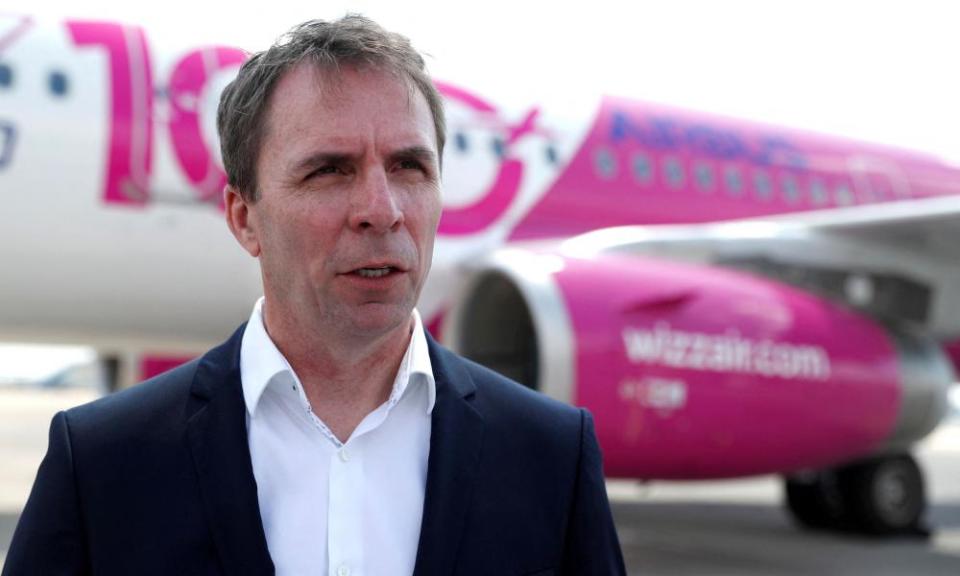Fury as Wizz Air boss suggests too many pilots refusing to fly when tired

Pilots have reacted with fury to the suggestion by the boss of Wizz Air that too many crew members were refusing to fly when fatigued.
The airline’s chief executive, József Váradi, told staff in an internal briefing: “We are all fatigued but sometimes it is required to take the extra mile.”
With air travel thrown into chaos by problems including staff shortages at airlines, airports and air traffic control, Váradi added: “I understand that fatigue is a potential outcome of the issues, but once we are starting stabilising the rosters, we also need to take down the fatigue rate. I mean, we cannot run this business when every fifth person of a base reports sickness because the person is fatigued.”
Deficient safety culture alert!@WizzAir CEO encourages pilots to fly fatigued! It’s like handing the car keys to a drunk driver. @EASA step in! You are WIZZ’ oversight authority… pic.twitter.com/qdJdBVwH90
— European Pilots (@eu_cockpit) June 8, 2022
He said cancelling flights was causing Wizz huge damage: “It’s reputational damage of the brand and it is the other financial damage, the transactional damage, because we have to pay compensation.”
The general secretary of the Balpa pilots union, Martin Chalk, said: “Even a basic safety culture would include a CEO who knew to support and praise pilots who do the right thing and not operate when they suspect they might be fatigued. I urge Mr Váradi to clarify that he would support any pilot who was responsible enough not to fly passengers and fellow crew when suffering from fatigue.”
The European Cockpit Association said that encouraging fatigued pilots and crew to fly was “like handing the car keys to a drunk driver”. It urged the aviation regulator, Easa, to take action as the oversight authority.
Maximum working hours for pilots and cabin crew are regulated, and no member of crew is supposed to fly if they believe they are so tired they could endanger the safety of the flight. Unions have highlighted the risks of fatigue, in particular for pilots.
A Wizz Air spokesperson said Váradi’s remarks had been edited from a 15-minute address to all airline staff. They added: “Supply chain issues are affecting all airlines, in particular staff availability and welfare. Our crew unavailability has been very low, at 4%. In this context, going the extra mile to minimise disruption was discussed.
“What this does not mean is compromising safety. Wizz Air and the airline industry are highly regulated, and safety has, and always will be, our first priority. We have a robust and responsible crew management system which meets the needs of our people and enables us to serve as many customers as possible in the current challenging environment.”
Wizz Air has had to cancel a number of flights, in part owing to the wider disruption in the industry, and yesterday said it could not guide the City on expected profits because of uncertainty, leading its share price to fall another 10%. It has recruited more than 2,000 extra staff in the past year and scrapped some operations to minimise disruption.

 Yahoo Finance
Yahoo Finance 